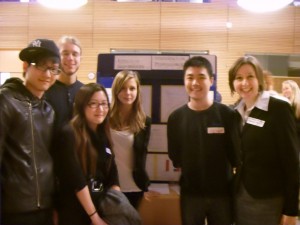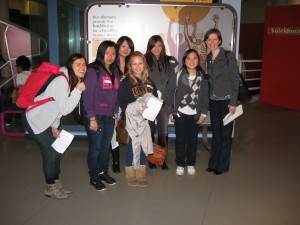An upcoming Teaching Fellows meeting has prompted me to reflect, yet again, on my assumptions and beliefs about teaching and learning. Our topic this week is lesson planning, and I selected both a pragmatic, nuts-and-bolts kind of lesson plan to consider, as well as a paper by Dan Pratt summarizing his work on the five perspectives of good teaching. It’s been a year or so since I last considered the teaching perspectives with respect to my own teaching. What strikes me the most this time around is the distinction between what I believe and what I (and my students) do in the classroom. I encourage students to take an active role in our lessons, and to do so I include a variety of activities including clicker questions, think-pair-share exercises, demonstrations, research projects, opportunities for students to draw diagrams and summarize what they’re learning (e.g., take-home messages). But when it comes down to it, I’m talking a lot of the time. While lecturing I try to connect material to examples, organize the material in new ways, elaborate or clarify some concepts to supplement deficiencies in texts, and so on. I also try to convey my enthusiasm and curiosity for the material. All of this seems more closely aligned with the transmission perspective. I try to take a variety of approaches as often as possible.
What I believe is that learners need to engage with the material and make it relevant to their lives. I also have high expectations for what my learners can do on their own: They’re intelligent people, so for me to package everything they need to know neatly, hand it to them, and ask for it back the same way (in the form of tests), would be an insult to that. Moreover, they need to be able to work with knowledge, package it for themselves, and find answers (or at least insight) on their own. I won’t be there to do it for them. But none of this is new… (see my philosophy).
What I’m considering is the extent to which my actions align with my beliefs (and vice versa). When I think of improving, who is that teacher I want to become? Do I want to become even more aligned with the developmental perspective? If so, what does excellence look like from a developmental perspective? In a class with one- or two- or three-hundred students? Once I figure out what excellence looks like, how do I achieve that excellence?

 Follow
Follow

